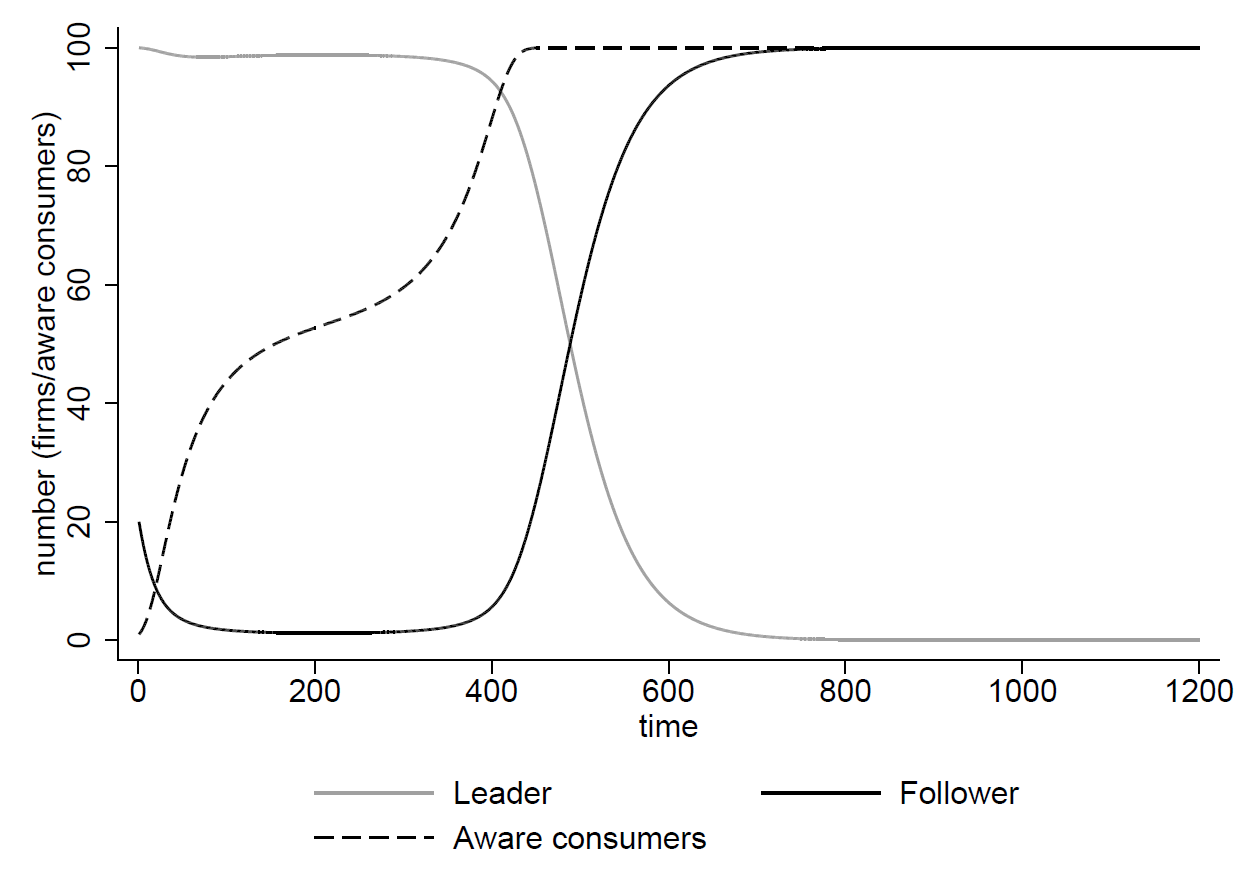Dario Diodato, Franco Malerba, and Andrea Morrison (2018), European Economic Review Vol.101. 297-329.
Change in industrial leadership is often explained in terms of technological and costs advantages. However firms in emerging economies not only have to produce high quality, cost-competitive goods, but also win the resistance of consumers in the world market, who are often adverse to purchasing products from countries that yet have to build a reputation. We argue that this country-of-origin bias significantly influences the chances of leadership change.
A model that aims at capturing the endogenous dynamics of demand building and leapfrogging is proposed. We show that in sectors with high monopoly power acquiring a superior technology is not sufficient for a latecomer country to become leader, unless a significant share of consumers is aware of the quality of its products. An extension of the model to multiple sectors shows that a latecomer country remains specialized into low-value undifferentiated goods, even after overtaking the technology of the leading country.




